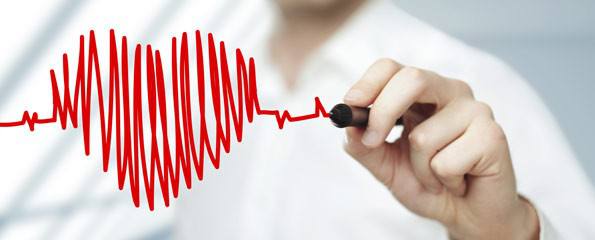Treat your mind (with knowledge) after a health scare
Just a fraction of people who have heart attacks receive mental health advice as they recuperate, despite the experience leaving them much more likely than the general community to develop depression or anxiety.
It comes as beyondblue and the Australian Healthcare and Hospitals Association release a new pamphlet, the first of its kind in Australia, to raise awareness about the increased mental health risks people face after a serious health issue has landed them in hospital.
beyondblue CEO Kate Carnell AO said factors associated with serious health scares such as shock, emotional trauma, lifestyle changes and lingering ill-health all contribute to the increased risk people face.
beyondblue-funded research that shows up to 50% of people who survive a heart attack or coronary artery disease then develop an anxiety condition, compared with 26% of the general population who will experience one over a lifetime. But Ms Carnell said despite this, only between 31% and 37% heart attack or coronary artery disease survivors receive information about how to cope emotionally as they recover.
“A recent analysis of people in a large Victorian town shows only about a third of people who’ve had a non-fatal heart attack or coronary disease get the mental health information they need, and this is not uncommon across the rest of Australia,” she said. “This means thousands of Australians who urgently need guidance on how to protect themselves from mental illness miss out, despite being almost twice as likely to develop an anxiety condition when compared to the general population. They are also more likely to become depressed.
“In fact, anyone who is struck by a sudden serious illness is at increased risk. People need to know that a sudden health event can leave them emotionally vulnerable and this pamphlet shows the simple steps they can take to ensure they don’t develop depression or anxiety. These pamphlets meet the urgent need to educate hospital patients about how they can protect themselves. People often make a full recovery from a physical illness, but their mental health suffers because they’re not aware of the risks they face.”
A 2009 literature review published by the Medical Journal of Australia documented further concerning links between serious health events and mental illness including:
• up to 80 per cent of people experiencing osteoporosis and arthritis experience depression
• more than 50 per cent of people with type II diabetes experience depression
• and more than 40 per cent of people who have a stroke develop depression after the stroke.
The free pamphlets are being delivered to hospitals around Australia including in Hobart, Brisbane and Darwin, and Ms Carnell urged hospitals that had not yet done so to order them from the beyondblue support service on 1300 22 4636. People who have had a health scare, their family and friends can also order the pamphlet or download it from www.beyondblue.org.au.
Australian Healthcare and Hospitals Association CEO Prue Power AM said the pamphlet will help guide people through the emotional journey after a sudden health event that leaves them hospitalised.
Ms Power said the pamphlet will help teach people about typical emotional reactions, how to identify the signs and symptoms of depression and anxiety and how to tackle these conditions.
“This pamphlet contains simple and straightforward mental health advice that will be used by thousands of people,” she said. “We are proud to be involved in the production of this pamphlet because it has the potential to help significantly in raising awareness of depression and anxiety.”
Federal Parliamentary Secretary for Mental Health, Melissa Parke, welcomed this evidence-based initiative to raise awareness of the risks that serious physical illness can pose to a person’s mental wellbeing.
“We need better understanding and greater recognition of the relationship between physical and mental health and the government is committed to supporting that work,” she said. “I congratulate beyondblue and the AHHA for this valuable contribution.”
Source: beyondblue
Dates
Tags
Created by:

 Login
Login














